Advertisements
Advertisements
प्रश्न
Thinking about the Poem
What does the poet say the wind god winnows?
उत्तर
The poet says that the wind god winnows the weak crumbling houses, doors, rafters, wood, bodies, lives and hearts, and then crushes them all.
APPEARS IN
संबंधित प्रश्न
Answer these question in a few words or a couple of sentence.
What did Margie write in her diary?
Why did Einstein write a letter to Franklin Roosevelt?
In the fair he wants many things. What are they? Why does he move on without waiting for an answer?
Why do you think Bill Bryson’s wife says to the children, “Take the lids off the food for Daddy”?
Read the following extracts from the story, and try to puzzle out the meanings of the encircled words from other words and phrases in the extract. Write the clues in the empty boxes. Then give your own explanation of the encircled word.
When the liner had finally vanished over the horizon, I was absolutely alone in the stormy night sea. First I thought I had to swim one way, then another. It was not even midnight yet, and I had no hope at all of finding my way in this terrible night time ocean. I began to feel afraid. Waves of fear rolled through me, starting from my hands and feet, attacking my heart and then reaching through my neck to my head. Waves broke over me and water went into my snorkel. I realised I would not be able to last even half an hour in such a condition.
I saw individual stars, but I could not distinguish the constellations they belonged to. Then dawn came and put out all my stars and I felt my solitude more keenly. The sky was grey at first, then blue-violet shades appeared. In a few minutes, the colours became brighter, with dark red strips cutting across the sky!
The rising sun came up over the ocean. I was surrounded by large waves. The clouds turned pink and swept across the sky in all directions. It was a windy day.
There was no land visible. I grew alarmed. Had I made a mistake in my calculations? Perhaps the current had carried me a long a way off the course during the night?
An hour passed, perhaps two. "Landlll" I could not deny myself the pleasure of shouting the magic word aloud and of hearing my own voice. Perhaps it was my ghostly island of Siargao? I almost felt I had succeeded - now at least I had hope.
The sun looked out for the last time, as if it was saying goodbye to me, and hid itself away again. In a few minutes the sky was filled with all the colours of a rainbow, the bright shades changing and merging as I watched. At first the clouds became deep red and then their edges turned bright orange. A little while afterwards, the clouds turned lilac and dark violet. Darkness fell swiftly. My second lonely night in the ocean began. The stars came out unnoticed. I changed course and headed for the south west. As it turned out, this was an unforgivable mistake.
Evening was approaching. The ocean around me was full of life; large fish often leapt out of the water and big birds flew right above my head. I could see the island distinctly now. A line of dancing palms stretched the length of its shore. The sides of the mountain were covered in many different shades of green.
An hour passed, perhaps more. It was extraordinarily quiet. Then suddenly to my horror, I discovered my island had noticeably begun to move north and was drifting further and further in that direction right before my eyes. Before I had worked out what was happening and could sharply change my course towards the north, the southern tip of the island had appeared in front of me and, beyond that, open ocean stretched to the very horizon. I was totally at the mercy of the current and realised to my alarm that it was slowly carrying me past the land.
My third night in the ocean crept up unnoticed. This third night in the ocean was very dark, much darker than the two previous ones. I almost decided to die as I had no hope of seeing another dawn. I was suddenly aware of a quiet voice: "Swim to the sound of the breakers."
Indeed, there had been a distant rumbling for some time, although I had paid no attention to it. Now, I started listening and I thought it sounded like the characteristic noise of jet aeroplanes constantly landing and taking off. The voice inside kept insisting that I should swim towards this thunder of waves.
At last I obeyed. Again I heard an approaching rumble. What I suddenly saw at a distance of about 30 or 40 metres has imprinted itself on my memory forever. It was a gigantic wave with steep, very slowly falling crests. Never in my life had I seen such an enormous wave - it even seemed to be touching the sky. It moved very slowly and was fantastically beautiful.
The wave did not break over me as I assumed it would. An irresistible force dragged me up its steep slope right to the very foot of the falling crest. Instinctively I clutched my mask snorkel and managed to take a deep breath. The crest started to break over me and pulled me under it. For a moment, I found myself in the air
under the crest as ifin a cave. Then my body was in a swirling current of water; the inner power of the wave made me recover several times, twisting me in all directions before it subsided.
I realised that I had to try to keep my body on the crest and I quickly took up a horizontal position. This time the wave quickly grabbed me and carried me at great speed for quite a long distance on its crest.
I got up to the surface easily and swam in the direction the waves were heading. "Somewhere there, beyond the reef, there should be a lagoon," I hoped.
Suddenly, I felt something hard under my feet. I could stand up to my chest in water! Around me I could see random currents of water, splashes of foam and phosphorescent spray, all swirling about. Before I fully came to my senses, another large wave approached and carried me some distance further. I was up to my waist in water when a new wave picked me up, taldng me several metres forward. Now the depth of the water was only up to my knees. I had enough time to take a few tentative steps, to catch my breath and look around.
I surfaced at the foot of very tall palm trees. I left a trail of luminous water and my body glittered like some princess's ball-gown. Only now did I feel completely safe. The ocean was behind me ....
(a) I saw individual stars, but I could not distinguish the constellation they belonged to. Then dawn came and put out all my stars.
Therefore, constellation means ................... 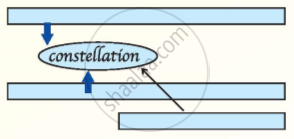
(b) Indeed there had been a distant rumbling for some time, although I had paid no attention to it. Now that I started listening to it I thought it sounded like the characteristic noise of jet airplanes constantly landing and taking off.
Therefore, rumbling means ............
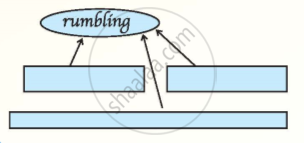
(c) It was a gigantic wave with steep, very slowly falling crests. Never in my life had I seen such an enormous wave. It seemed to be touching the sky.
Therefore, gigantic means ............
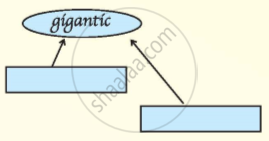
(d) The wave did not break over me as I assumed it would. An irrsistible force dragged me up its steep slope, right to the very foot of the falling crest.
Therefore , irrisistible means.....................

(e) For a moment, I found myself caught in the air under the crest, as if in a cave . Then , my body was in the swirling current of water ; the inner power of the wave made me recover several times , twisting me in all directions before it subsided .
Therefore , swirling means..........
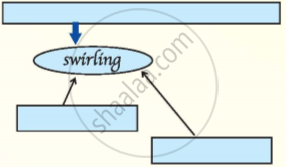
(f) All around me I could see random currents of water splashes of foam and phosphorescent spray of luminous water and my body glittered like some princess's ball gown.
Therefore, phosphorescent means .................
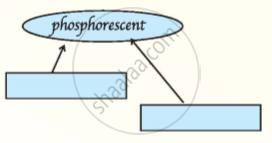
What does he plant who plants a tree? a
He plants a friend of sun and sky;b
He plants the flag of breezes free;
The shaft of beauty, towering high;
He plants a home to heaven anigh;
For song and mother-croon of bird
In hushed and happy twilight heard____
The treble of heaven's harmony_____
These things he plants who plants a tree.
Read the lines given above and answer the question that follow:
Explain with reference to context.
What does he plant who plants a tree? a
He plants a friend of sun and sky;b
He plants the flag of breezes free;
The shaft of beauty, towering high;
He plants a home to heaven anigh;
For song and mother-croon of bird
In hushed and happy twilight heard____
The treble of heaven's harmony_____
These things he plants who plants a tree.
Read the lines given above and answer the question that follow:
Of the seven hundred villages dotting the map of India, in which the majority of India’s five hundred million live, flourish and die, Kritam was probably the tiniest, indicated on the district survey map by a microscopic dot, the map being meant more for the revenue official out to collect tax than for the guidance of the motorist, who in any case could not hope to reach it since it sprawled far from the highway at the end of a rough track furrowed up by the iron-hooped wheels of bullock carts. But its size did not prevent its giving itself the grandiose name Kritam, which meant in Tamil coronet or crown on the brow of the subcontinent. The village consisted of fewer than thirty houses, only one of them built from brick and cement and painted a brilliant yellow and blue all over with
gorgeous carvings of gods and gargoyles on its balustrade, it was known as the Big House. The other houses, distributed in four streets, were generally of bamboo thatch, straw, mud and other unspecified material. Muni’s was the last house in the fourth street, beyond which stretched the fields. In his prosperous days Muni had owned a flock of sheep and goats and sallied forth every morning driving the flock to the highway a couple of miles away.
Read the extract given below and answer the question that follow.
Describe Muni’s prosperous days.
Joe did not see the Guardians of the Poor on that day, on the next, nor on the day following. In fact, he never saw them at all on Maggie’s account, for in less than a week Mrs. Joe Thompson would as soon leave thought of taking up her own abode in the almshouse as sending Maggie there.
What light and blessing did that sick and helpless child bring to the home of Joe Thompson, the poor wheelwright! It had been dark, and cold, and miserable there for a long time just because his wife had nothing to love and care for out of herself, and so became soar, irritable, ill-tempered, and self-afflicting in the desolation of her woman’s nature. Now the sweetness of that sick child, looking ever to her in love, patience, and gratitude, was as honey to her soul, and she carried her in her heart as well as in her arms, a precious burden. As for Joe Thompson, there was not a man in all the neighbourhood who drank daily of a more precious wine of life than he. An angel had come into his house, disguised as a sick, helpless, and miserable child, and filled all its dreary chambers with the sunshine of love.
Read the extract given below and answer the question that follow.
What changed her ? Describe the change in her.
What is De Levis going through at this point of time ? What light does it throw upon his character ? What change do we see in his character later in the play ? Give a reason to justiji; your answer.
What changes occurred in Pamela's persona/ii after the August holiday?
On getting Gopu Mama’s chappals, the music teacher tried not to look too happy. Why?
How did Mr Gessler found that the boot was not comfortable for author?
During the 1760 and 1770s, it became common to pitch the ball through the air. What changes it brought in to the game of cricket?
What is a dream?
How did the ghost make a plan to trick Vijay Singh finally?
Use the clues given below to complete this crossword puzzle.

Across
1. very tired
2. had an angry look on the face
3. short trousers
4. a fault in a machine that prevents it from working properly
5. a small and naughty boy-fairy
Down
6. work that must be done every day, often boring
7. a basket with a lid
8. gave a short, high-pitched cry
Antonio says that trying to reason with Shylock was like ______.
- standing on the beach and ordering the waves to wash away the sands.
- reasoning with a ewe which was crying out in distress at the loss of her lamb.
- trying to soften a rock.
- commanding the pine trees on the mountain side to remain quiet and motionless when battered by strong winds.
Read the following passage carefully and answer the questions that follow:
|
Ashamanja Babu lived in a small flat in Bhowanipore. A clerk in the registry department of Lajpat Rai Post Office, Ashamanja Babu was fortunate as he could walk to his office in seven minutes flat without having to fight his way into the buses and trains of Calcutta. He lived a rather carefree life as he was not the kind of person to sit and brood about what might have been had fate been kinder to him. On the whole, he was quite content with his lot. Two Hindi films and fish twice a week-these were enough to keep him happy. The only thing that 10 perturbed him at times was his lack of companionship. A bachelor with few friends and relatives, he often wished he had a dog to keep him company. It need not be a huge Alsatian like the one owned by the Talukdars, who lived two houses down the lane; it could be any ordinary little dog which would follow him around·morning and evening, wag its tail when he came home from work and obey his orders faithfully. Ashamanja Babu's secret desires were that he would speak to his dog in English. 'Stand up', 'Sit down', 'Shake hands' - how nice it 20 would be if his dog obeyed such commands! That would make him really happy. On a cloudy day marked by a steady drizzle, Ashamanja Babu went to the market in Hashimara to buy some oranges. At one end of the market, beside a stunted kul tree, sat a man. As their eyes met, the man smiled. Was he a beggar? His clothes made him look like one. Ashamanja Babu noticed at least five sewn-on patches on his trousers and jacket. But the man didn't have a begging bowl. Instead, by his side was a shoe-box with a 30 little pup sticking its head out of it. 'Good morning!' said the man in English. Ashamanja Babu was obliged to return the greeting. 'Buy dog? Dog buy? Very good dog.' The man had taken the pup out of the box and had put it down on the ground. 'Very cheap. Very good. Happy dog.' 'How much? What price?' 'Ten rupees.' A little haggling and the price came down to seven rupees. Ashamanja Babu paid the money, put the pup back in the shoe-box, closed the lid to save it from the drizzle, and turned homewards, forgetting all about the oranges. |
- For each word given below choose the correct meaning (as used in the passage) from the options provided: (2)
- perturbed (line 11)
- frightened
- unsettled
- confused
- mocked
- stunted (line 25)
- prevented from growing
- prepared for tricks
- prevented from taking action
- allowed to do stunts
- perturbed (line 11)
- Which word in the passage means the opposite of the word 'expensive'? (1)
- carefree
- ordinary
- cheap
- haggling
- Answer the following questions briefly in your own words:
- What kept Ashamanja Babu happy? (2)
- What does this tell you about him? (2)
- What is that one other thing he needed to complete his happiness? (1)
- Why did Ashamanja Babu think the man was a beggar? (2)
- Why did Ashamanja Babu forget about his oranges? (2)
- In not more than 50 words, narrate the series of events from the time the puppy was taken out of the box till it was paid for. (8)
